Karnataka Legislative Assembly elections were held on 10 May 2023 to elect all 224 members of the Karnataka Legislative Assembly. The votes were counted and the results were declared on 13 May 2023. The Indian National Congress won the election securing a 136 seats majority. The All India Congress Committee (AICC) has declared Siddaramaiah as the Chief Minister for the state who will be sworn on Thursday.
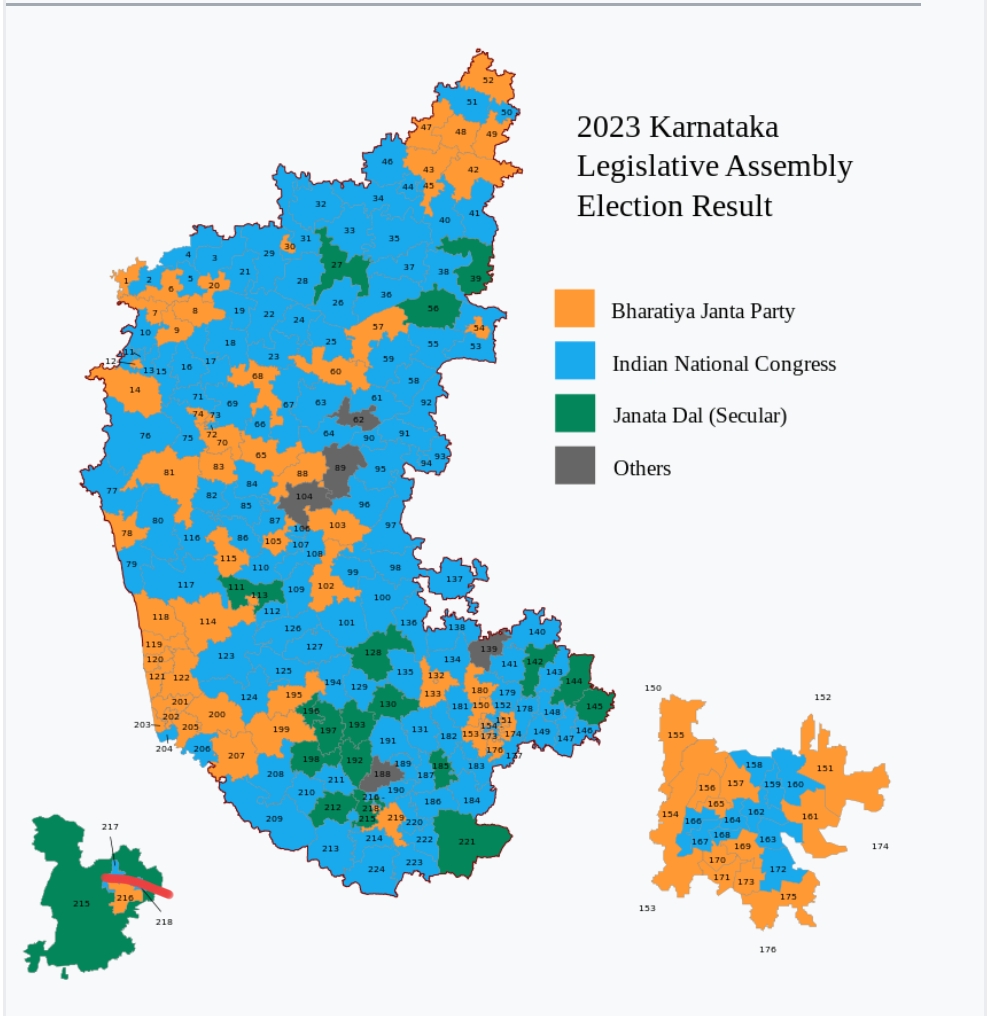
The Karnataka elections has brought in minds of the voters various questions. Here are some of my key takeaways on Karnataka elections.
1) Could there be an Operation Lotus?
The most important question which is being asked now is if there’s a possibility of an operation lotus happening. Will history repeat itself?
In July 2019, the coalition government collapsed due to resignations by several members of Congress and JD(S) in the assembly. Subsequently, Bharatiya Janata Party formed the state government, with B. S. Yediyurappa becoming Chief Minister.
On 26 July 2021, Yediyurappa resigned from Chief Minister’s post and Basavaraj Bommai was sworn in as the new Chief Minister on 28 July 2021.
On 19 February 2023, BJP leader H.D. Thammaiah joined Congress along with his supporters. On 9 March 2023, BJP MLC Puttanna joined the Congress. Former Karnataka Chief Minister Jagadish Shettar quit BJP on 16 April 2023 and joined Congress the next day. Other leaders that left BJP before the polls include Laxman Savadi, S Angara, M P Kumaraswamy and R. Shankar.

R.Ashoka of BJP said before result announcement that if Plan A fails then there is Plan B to grab power. One must notice that this statement can be openly stated and glorified by the media as Operation Kamal. Democratically elected government is now regarded a cliched concept that is no longer in fashion. Very soon India might as well witness the Gerrymandering system like the United States system of checks and balances. Is this surprising? No? What is then surprising? That BJP can afford to say so.
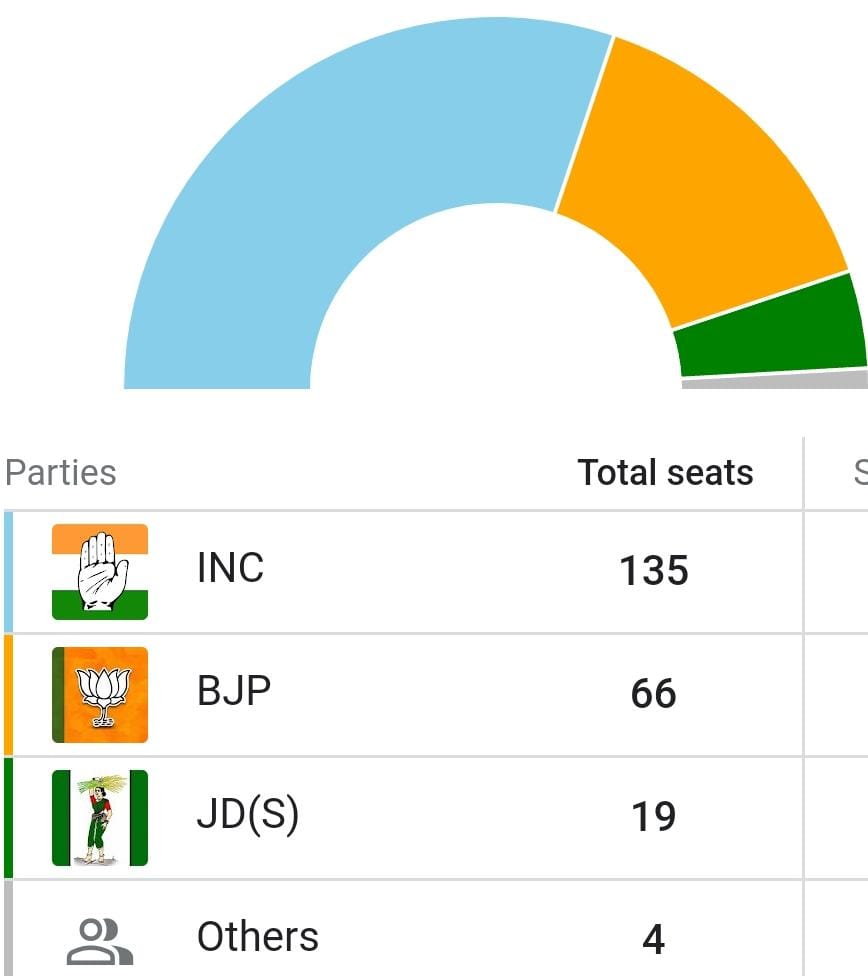
Here’s the explanation. Congress won 135 seats. BJP won 66. JDS won 19. Other independent candidates won 4 seats. A 113 seats majority is required to form government. BJP is a party that describes itself as a party of Hindutva Nationalism and Social Conservatism. JDS on the other hand is a centre left party that describes itself a secular party. It’s unlikely that two opposing ideologies will collaborate together to form a joint alliance for Operation Kamal. However, even if so happens it will come to 85 seats. Even if the independent candidates join BJP is still short of 24-28 seats to form government.


The BJP would then require to poach a minimum of 26 candidates from Congress. Given that it is no longer a coalition government as it was in 2019, it’s highly unlikely defections would happen. More importantly, even if people are ready to sell their soul at an individual level for 100 crore each, it is highly unlikely there will be stability of the future government. This is because the previous operation lotus government now has the reputation of being corrupt amongst the public and the fact that it too can fail is proven. Nobody would like to be part of a government having sold itself that isn’t stable. A operation lotus 0.2 would indicate political instability with a possibility of president rule in future. A election which the RSS too knew in advance wouldn’t be a bjp victory is for sure not a government that can fall now. Even if defections from Congress take place, exactly 26 is difficult to achieve when multiple leaders from BJP have joined it.
Perhaps, to poach exactly 19 members of JD(S) could be difficult. For a party that has now lost even it’s strong footholds will be extra cautious to such risky decisions. Fear of losing government again like it happened last time will make them fear selling their souls. 2023 election proved that even those seats that were historically strong holds of the JD(S) can be lost proved that it never was a regional party game thus, they wouldn’t be given importance even if they join BJP. Thus, mathematically and politically Operation Lotus is impossible.
2) Is the BJP out from South India?
There is neither a BJP government nor an NDA alliance government existing in south India now.

Historian Ramachandra Guha in conversation with journalist Karan Thapar, Guha sought to advance the narrative of a “BJP-free South India” while dismissing that the party’s vote share remained more or less intact. It’s strong performance in and around Bengaluru slightly underscores this argument. By uncritically upholding this template as an exemplary system of governance, political commentators are unwittingly committing the same mistakes as those who stereotype all South Indians as ‘Madraasi’.
Mr.Modi even in his Mann Ki Baat has highlighted the south Indian states, from Subrahmanya Bharathi’s poetry on Irish teacher Sister Nivedita, a disciple of Swami Vivekananda, to the Kashi Tamil Sangamam in 2022, one gets a sense of how artificial and contrived the divisive rhetoric of South Indian exceptionalism really is.
What is important for us to highlight here is BJP’s objective. The BJP’s objective was never about winning elections as in making chief ministers in South. BJP knows well it can never form a government in south India nor does it have a strong local face there. The BJP gives importance to state elections aggressively, in Bengal too it did a magnificent campaign but lost. South India too is about opening pockets and experimentation. Experimentation of how successful a communal agenda is amongst the educated class. Opening pockets as in motivating people to vote for them in general elections.
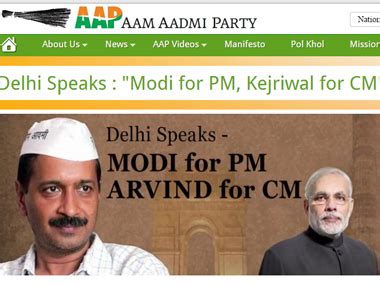
A general election algorithm is different from a state election algorithm. There are people who said in 2013, “Kejriwal for CM, Modi for PM.” Then there are people who said in 2021, “TMC for West Bengal, Congress for India”. This proves that people who may have voted for a party in state is not a party they necessarily support in the centre. I even know Communists in Bengal who voted for the left in state and BJP in the centre. To equate South India as a left heartland like in Bengal is BJP’s strategy. Everything else is stunt. There are many communists in Bengal who voted for the BJP in the centre, left in Bengal, but seeing TMC win elections they left CPM and joined the BJP. The left knows it cannot win in India, it has not the charm, thus its alliance with the Congress as a national party has never worked. For example, Kerala has a communist government, this explains why BJP has eyes at it.
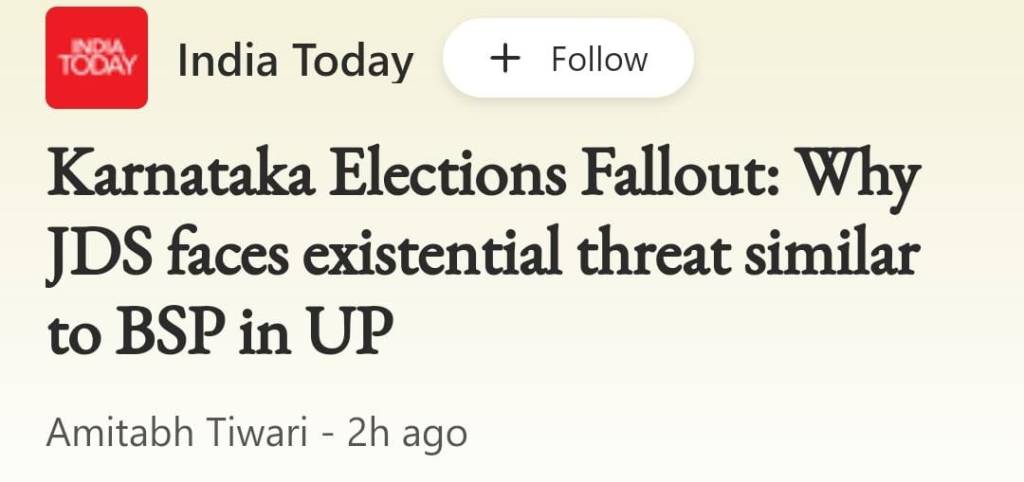
Congress alliance with JD(S) and its collapse in state too proved that a national party can never be in alliance with a state party for regional elections in particular. The Karnataka elections was not about BJP winning, as it was clear by surveys it won’t. It was about seats disparity. 130 or 140 fight for the Congress. Whether the BJP will get 60 or 90 seats. If it had got 90 seats, the government could fail through operation lotus, the back up plan argument is designed on that basis. Anyway, JDS future is now uncertain, they can be anything but not a kingmaker in near future. Out of the bandwagon effect given to ideological considerations it may however want a coalition in future with the Congress in general elections.
3) How will this affect the 2024 elections?
Karnataka elections prove that BJP may win the Hindi heartland but not South India. It will never form the government there how hard it may try. As with regards to opening pockets that point has been explained above. The BJP agenda is limited to that alone. Congress victory has been credited to Rahul Gandhi’s Bharat Jodo Yatra. Statistically it makes logical sense. This will place Rahul Gandhi as a mass leader capable of winning elections in the Indian diaspora.
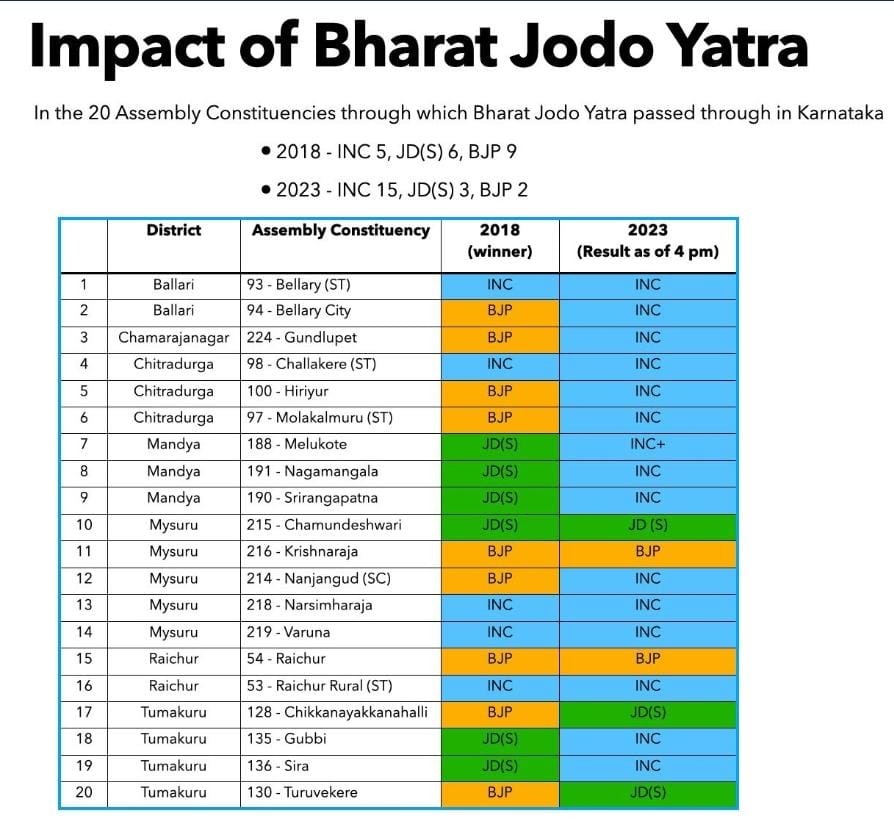
Emphasis on local leadership amorted rumours of internal conflicts in Congress. Multiple faces other than the Gandhi’s under Kharge leadership ceases off nepotism monopoly argument. Mallikarjun Kharge once called Gandhi puppet too shares credit for party victory. This sends a message to the common masses, that there are leaders in Congress who can make strategic plans and need not rely on ‘nods’ by the Gandhi Scion. Such a shift in general perception will be favourable for the Congress in 2024 elections. As reasons not to vote for Congress as given earlier are now losing ground. The BJP’s inability to offer any alternative made it even more clear.

During 2019 the BJP offered radical decisions like article 370 removal, ram mandir which it eventually even did. However, the Congress was accused of not offering an alternative. The state election perception is reverse now. Rahul Gandhi’s perception of post BJY is changed, thus 2024 perception backed by anti+incumbency arguments may just be like Karnataka.
4) Communal Agenda – Does it work?
Karnataka since last few months has been the hub of communalism. According to political analysts Phani Rajanna and Sandeep Shastri, with Karnataka polls nearing, the BJP is raking up more and more communal issues to divide people and polarise the votes. This has been shown by communal tensions started by right-wing Hindutva groups on hijab, halal, azan, boycott of Muslim-run shops, and moral policing of Muslims and Christians, which have been linked to the Bommai government.
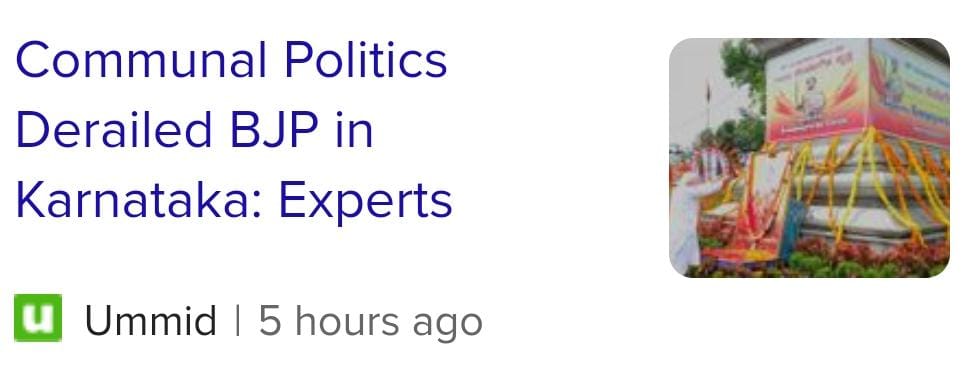
The Bommai government courted controversy with its orders to take away 4% OBC quota from Muslims and redistributing them to Lingayats and Vokkaligas. In addition the government has expressed support for internal reservation for Scheduled Castes into SC right, SC left and SC ‘touchable’ and SC others. Communities such as the Banjara have protested this move as depriving them of a share drawing stark criticism from the opposition Congress, which accused it of neglecting governance issues.
The large share in Muslim votes proved that this happened due to bjp’s deliberate ragging of the minorities and that communal politics as a traditional approach is no longer contributing to electoral victory at least in states. People in India vote primarily for two reasons, how it will be benefited and out of bandwagon effect that is people vote for a party that can win elections as people don’t want to waste their votes. The former being relevant in state elections and latter in general for proportional and other demographic reasons. The BJP’s agenda hurt Kannadigas at an individual level. The Congress campaign with 5 guarantees sent a hope of being bennefited at a individual level. As it was a rainbow coalition with lingayat, SC, ST, Muslims, youth, women and all other sections showing Congress in the forefront. The Congress too in its manifesto gave promises for all which were well endorsed.
5) The Modi factor

The over emphasis on national leaders including the Prime Minister himself in election campaigns suggested that there is no local leader for the BJP in Karnataka. The Modi magic is no longer working in the sense that people in state elections want a proper CM face which the Congress was able to offer as Siddaramaiah or DK Shivkumar. During 2019 elections it was raised that INC didn’t have a proper declared PM face thus it lost support. Same logic applies to this election as well. Another thing important to note here is that even in the BJP there is no other PM face other than Mr.Modi with Amit Shah being infamous for frequent disappearances and Yogi Adityanath being CM. This has led to anti-incumbency factor portraying him his politics as old, irksome and non-dynamic.
6) The Karnataka Model as Battle of Britain
The Battle of Britain was a military campaign of the Second World War, in which the Royal Air Force (RAF) and the Fleet Air Arm (FAA) of the Royal Navy defended the United Kingdom (UK) against large-scale attacks by Nazi Germany’s air force, the Luftwaffe. It was the first major military campaign fought entirely by air forces. The battle also significantly shifted American opinion. During the battle, many Americans accepted the view promoted by Joseph Kennedy, the American ambassador in London, who believed that the United Kingdom could not survive.
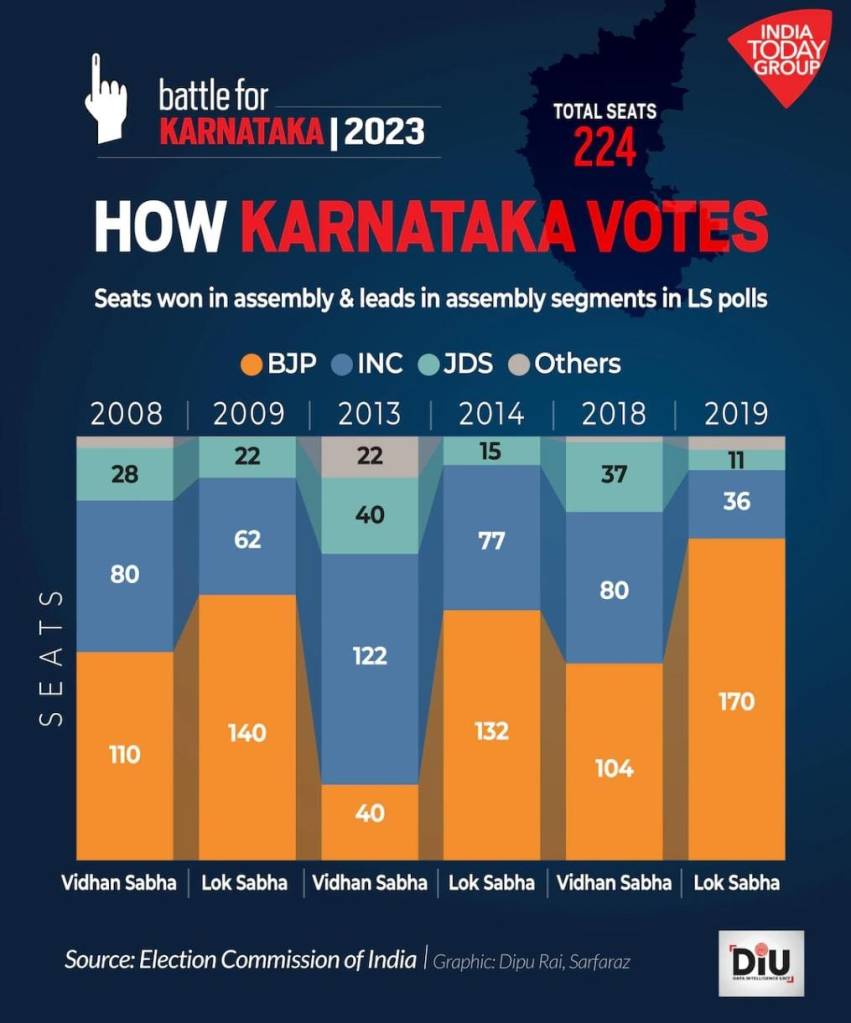
Like Battle of Britain proved Nazi force can be defeated and victory for the allied forces is not inevitable, Congress too proved the same thing. That BJP can be defeated if a proper and effective campaign is done. EVM manipulation is a reality but not a fairy tale. Absolute contradiction cannot happen to general mass perception. Historically, there is no election which had an absolute 50-50 winning possibility be it state or national elections.
I wish my best wishes to the Siddaramaiah government in Karnataka. May they work for people and opposition unity increases during this tough time for democracy.
